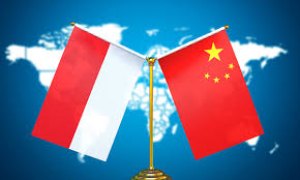Indonesia to explore non-edible coconuts as sustainable aviation fuel source
The Ministry of Energy and Mineral Resources (ESDM) is planning to develop non-edible coconuts as potential feedstock for for aviation fuel or bioavtur.
"Rejected coconuts have the potential to become raw material for bioavtur or Sustainable Aviation Fuel (SAF)," Edi Wibowo, Director of Bioenergy at the Directorate General of New, Renewable Energy, and Energy Conservation (EBTKE) at the ESDM Ministry, told a media gathering at the EBTKE office on Monday, September 9, 2024.
However, the implementation of using non-edible coconuts for bioavtur still faces challenges, particularly in terms of cultivation.
Currently, coconut production remains limited to smallholder farms rather than large-scale industrial plantations.
To address this, the government is considering assigning the Palm Oil Plantation Fund Management Agency (BPDPKS) additional responsibilities to manage other commodities like cocoa and coconuts. This would help improve the cultivation and downstream processing of coconuts, potentially leading to their use as SAF feedstock.
Studies on this potential have already been conducted by researchers from Japan and local academics, Edi noted.
The process would involve phased development, starting from basic research to laboratory testing before moving to pilot projects and commercialization.
The Ministry's SAF roadmap also includes options for using other materials, such as Used Cooking Oil (UCO) and Palm Oil Mill Effluent (POME), alongside non-edible coconuts.
The government is targeting SAF production to account for 1 percent of aviation fuel by 2027, with efforts underway to expedite the development of applicable technologies.
This initiative aligns with Indonesia's broader commitment to advancing renewable energy and reducing carbon emissions in the aviation sector.
Tag
Already have an account? Sign In
-
Start reading
Freemium
-
Monthly Subscription
30% OFF$26.03
$37.19/MonthCancel anytime
This offer is open to all new subscribers!
Subscribe now -
Yearly Subscription
33% OFF$228.13
$340.5/YearCancel anytime
This offer is open to all new subscribers!
Subscribe now






